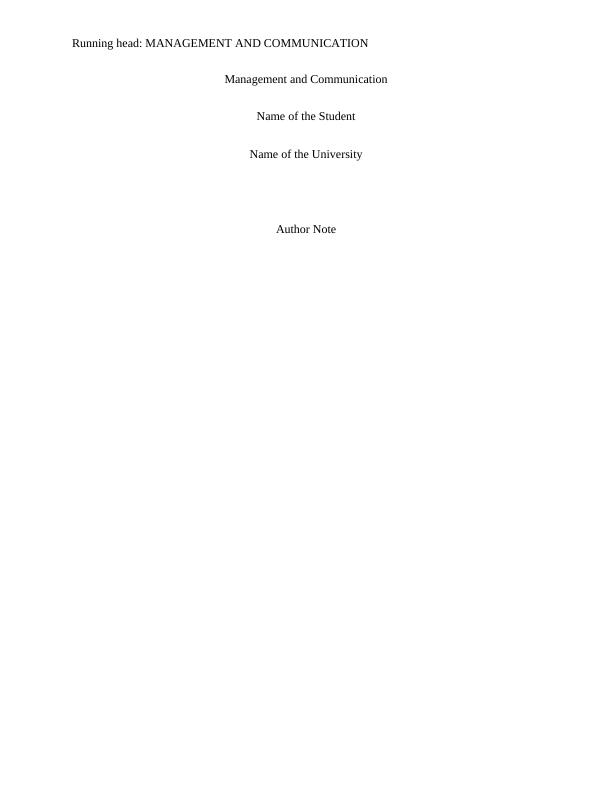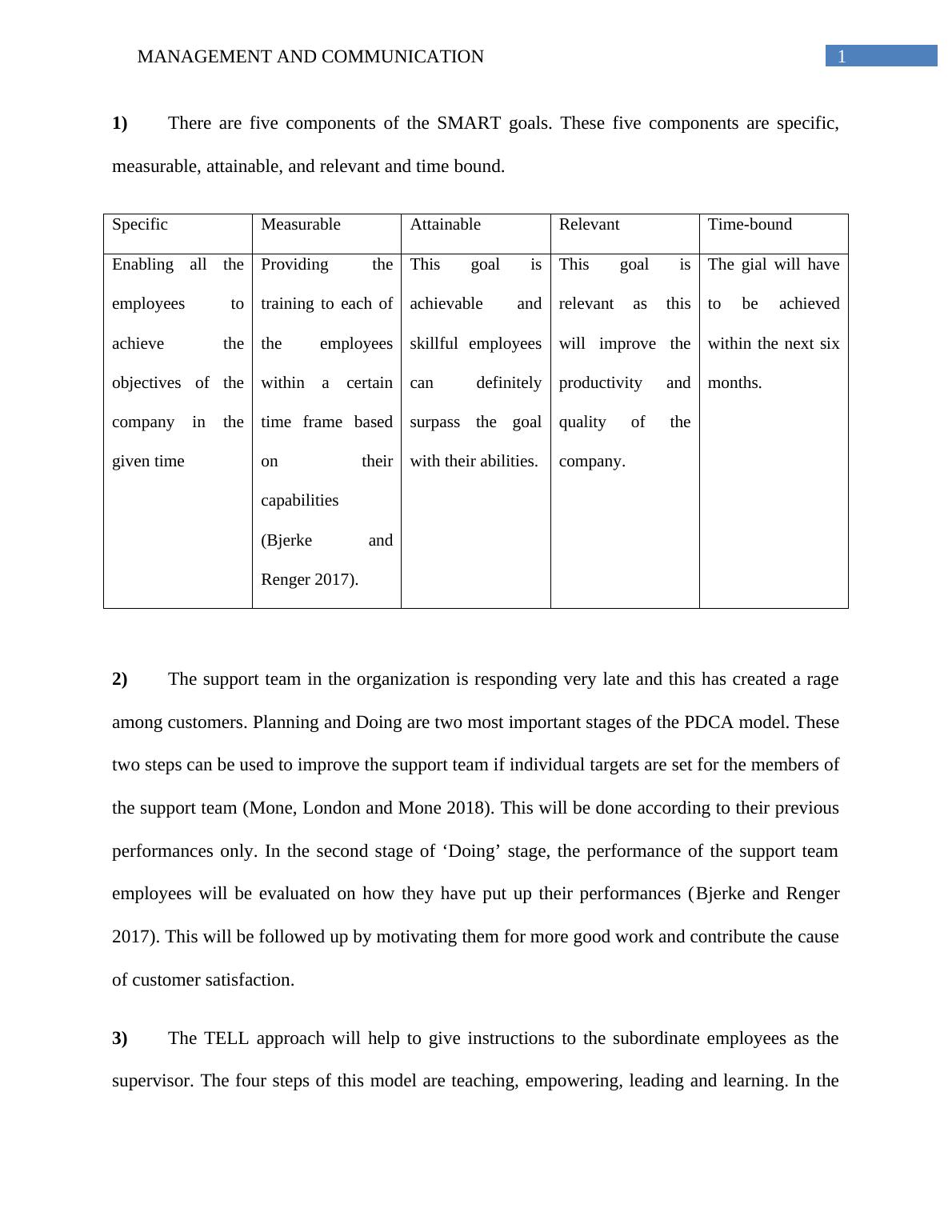Management and Communication - Five Components of the SMART Goals
Added on 2022-08-21
4 Pages761 Words18 Views
End of preview
Want to access all the pages? Upload your documents or become a member.
Critical Analysis of Performance Appraisal and Motivation
|6
|2012
|63
Leadership and its Various Aspects
|9
|2025
|304
Role of Developing the Manager Report
|12
|3807
|28
Team Performance Improvement Plan (TPIP) for Career Technology
|18
|2629
|90
Organisational Behaviour: Effective Team, Tuckman's Theory, Path Goal Theory, and Team Development Theories
|9
|2220
|106
Individual Presentation on Organisational Behaviour
|18
|890
|27


